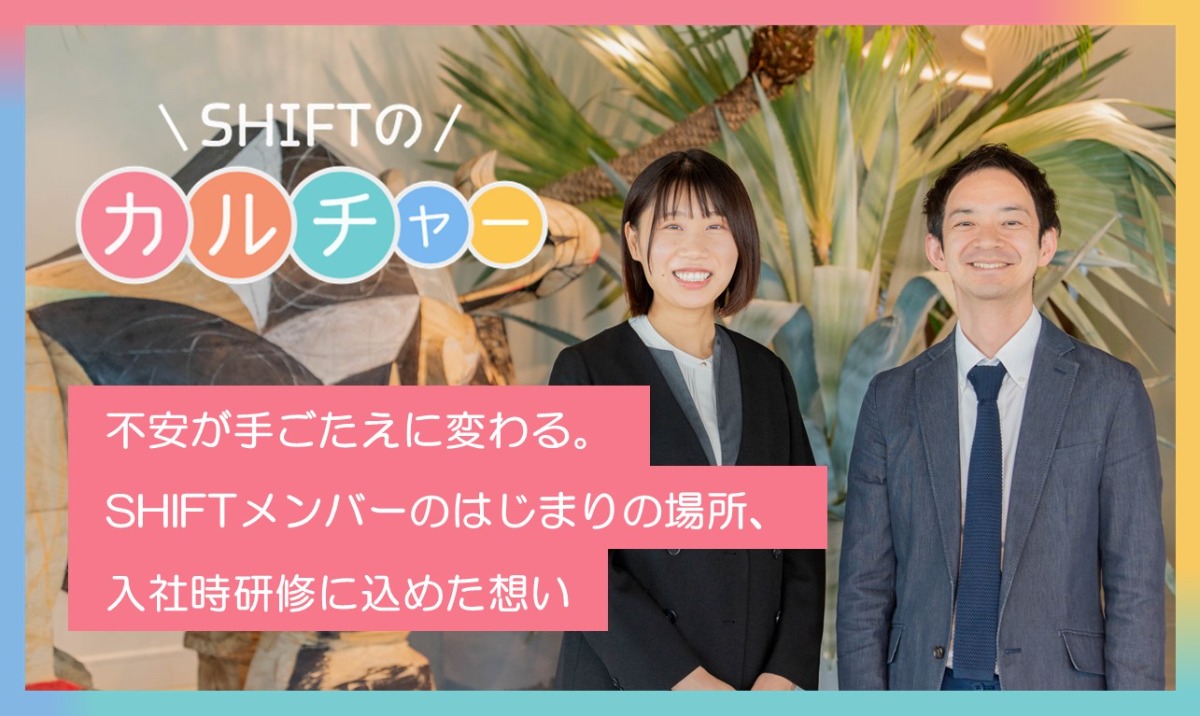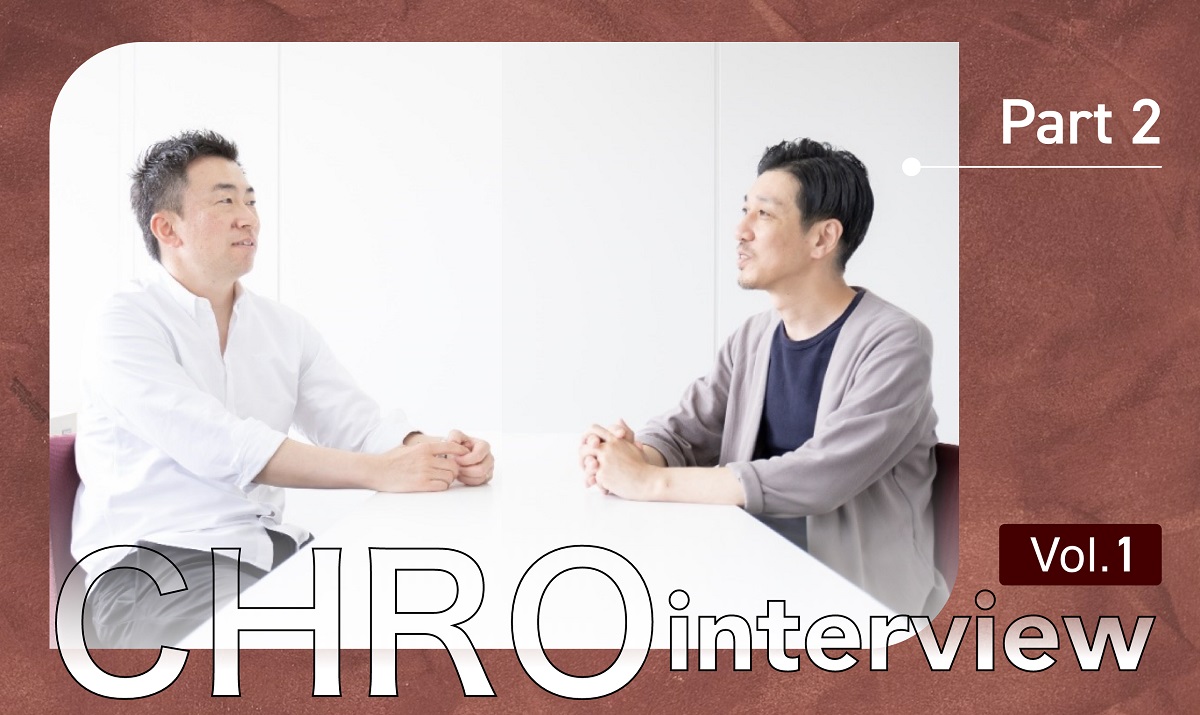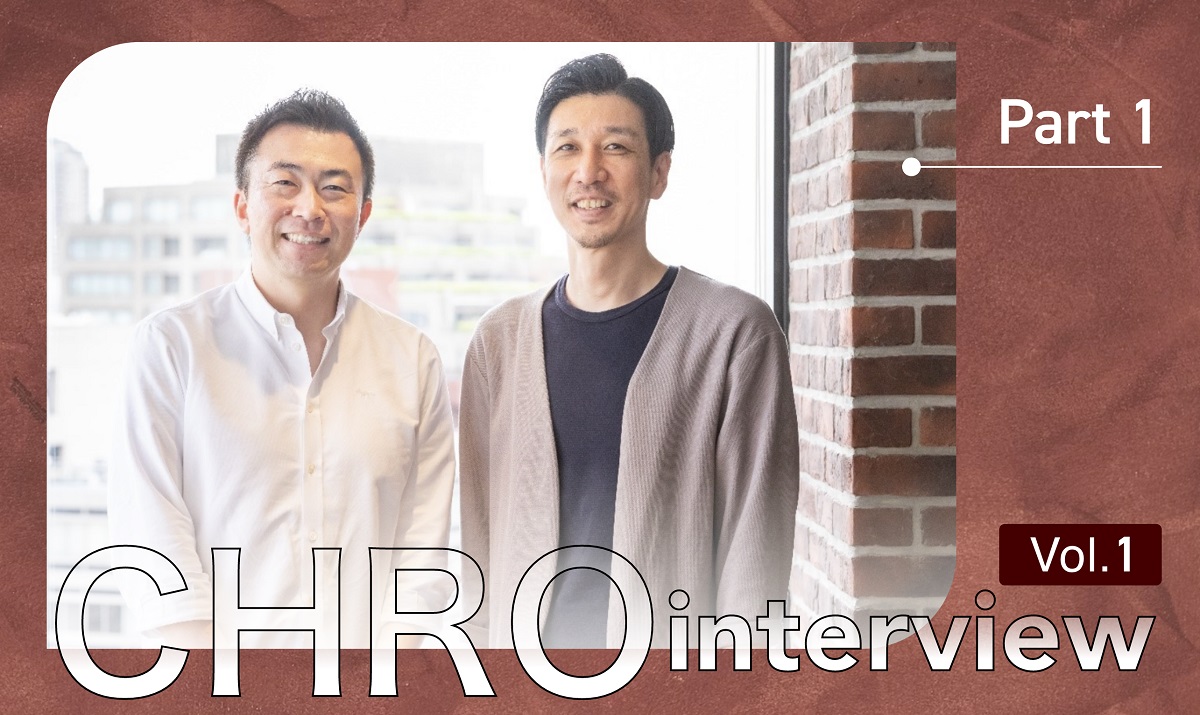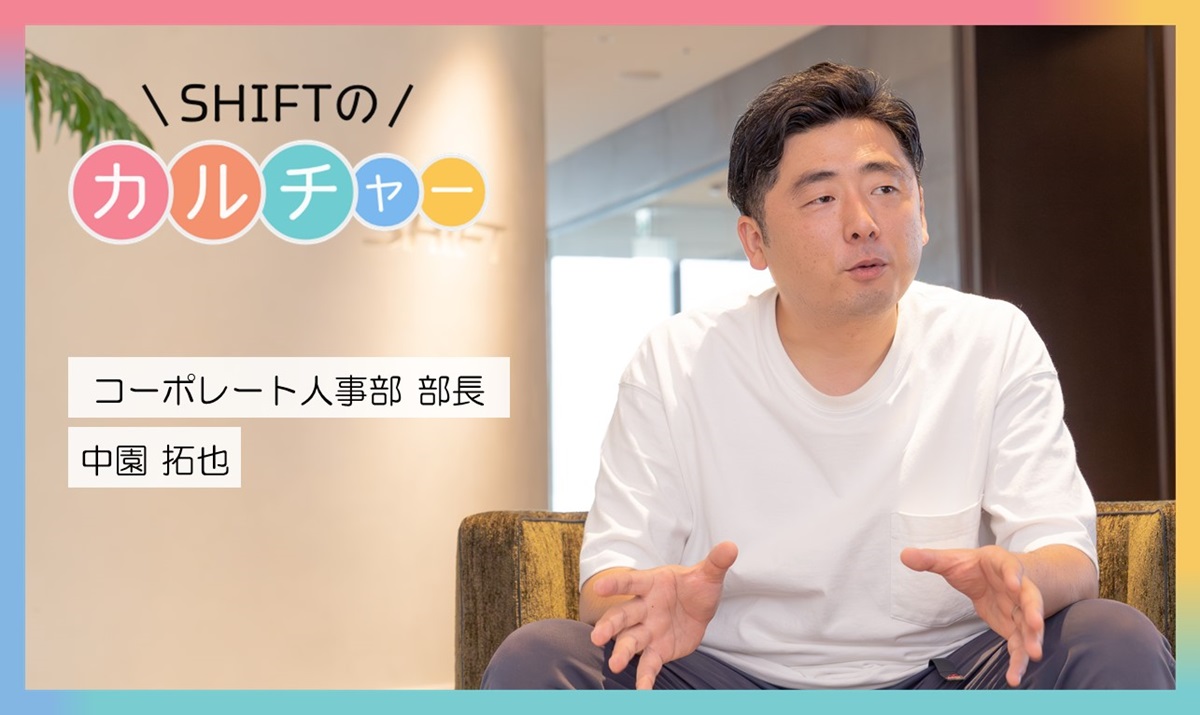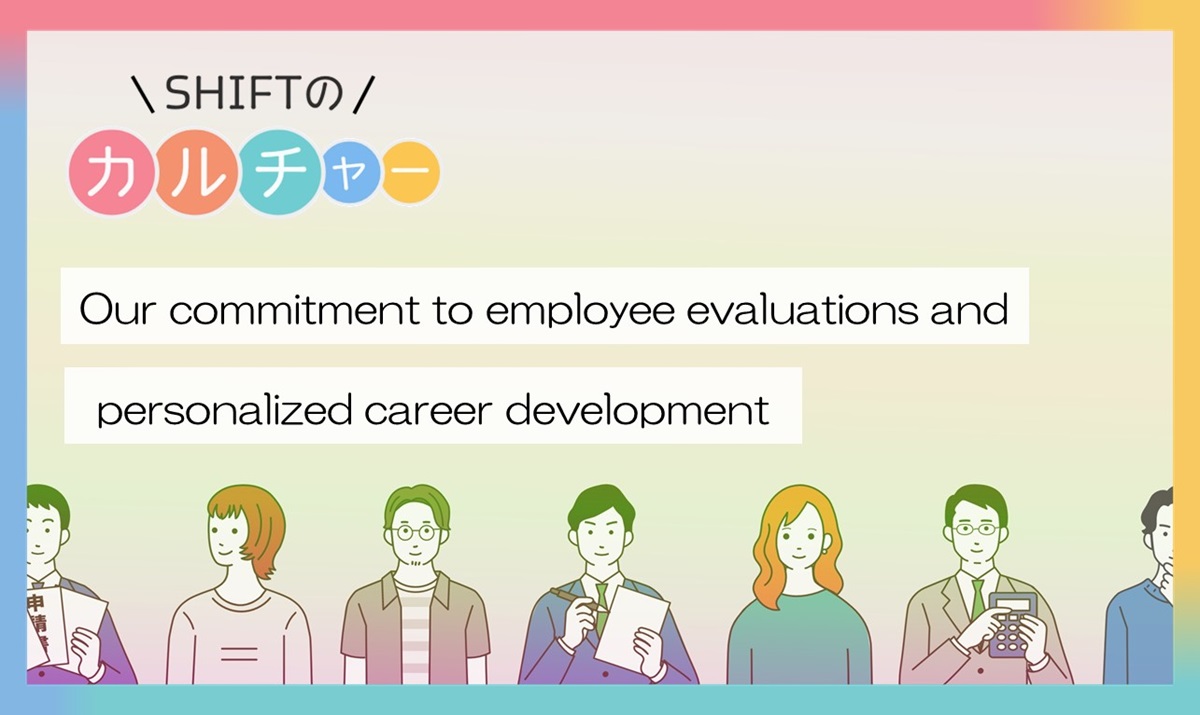
Our commitment to employee evaluations and personalized career development for every member
120+ hours.
Members of the management team at SHIFT typically dedicate around 120 hours to a round of employee evaluation meetings. Since these cycles occur every six months, the leadership team allocates two months annually for evaluations.
SHIFT’s whole evaluation process balances short-term and long-term career planning, which includes objective skill assessments, goal setting for the upcoming cycle, salary adjustments, one-on-one meetings, and more. And because SHIFT places importance on individual career development, evaluations are seen as a strategic priority for the leadership team rather than a box-ticking exercise.
Perhaps you are curious about what we discuss in these extensive meetings or how the evaluation system is structured.
If so, this interview with Takuya Nakazono, General Manager of the Corporate Human Resources Department, will answer those questions and more.
-
Takuya Nakazono, Section Manager, HR Department, Personnel&Administration Division, Corporate HR Unit
Since joining SHIFT in 2017, he has worked on HR systems, employee evaluations, talent management, and other personnel policies.
A father of two, he spends his time outside work playing soccer and games with his children. His motto is “You won’t know until you try!”
Contents:
No matter how many employees we have, SHIFT will continue to focus on each individual
Let’s begin with a deeper look at the semi-annual evaluation meetings mentioned above.
During the meeting, we conduct a detailed assessment of the employee’s results during the past six months.
Goal achievement and other assessment criteria are reviewed one-by-one, and managers discuss a handful of questions with each team member. These include:
“What were the factors that led to success or failure?”
“What needs to happen for this person to receive a salary increase?”
“Where will their career be in five years?”
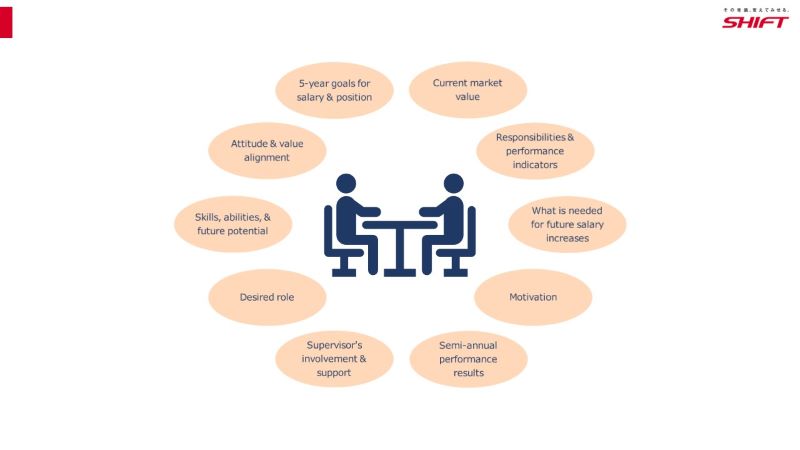
These topics allow for a sincere conversation, with some meetings lasting up to an hour.
As a leader, it will not be possible to have meaningful career conversations without considering what opportunities to provide to your team members on an ongoing basis.
For these evaluations to be effective, leaders must engage in continuous dialogue with employees, seeing them as whole people whose work also impacts their lives.
This belief permeates the management team at SHIFT. Our CEO, Masaru Tange, participates in nearly 20% of all evaluation meetings, while directors and general managers also attend the rest.
Our workforce is growing at a tremendous pace, but we are committed to maintaining this level of individual focus.
To ensure accurate evaluations of employees that managers interact with less frequently day-to-day, we developed an in-house talent management system called “Hito-log.”
The system collects data that provides managers additional insight into their employees’ work.
We constantly reflect on what information would be helpful and update it whenever people ask, “Do you have any data on this?” The number of available data points continues to grow, and now there are as many as 400.
I believe these efforts reflect SHIFT’s desire to understand people correctly and ensure that we take the time to evaluate each individual, no matter how many people we have.
Where do you want to be in five years? Goal sheets and absolute evaluations at SHIFT
You may have noticed that the questions managers ask during evaluation meetings are focused solely on personal growth.
So here is an overview of the complementary goal-setting process happening at the beginning of each cycle.
Feeling a sense of purpose and intrinsic motivation is essential for growth. That is why SHIFT guides employees to set and evaluate their own goals, rather than using a top-down method to establish these targets.
The first item on the goal sheet is a five-year career vision. Subsequent sections ask employees to outline organizational goals, clarify their supervisor’s expectations, and set personal goals for the half-year period.
In other words, the starting point is the question, “Where do you want to be in five years?”
Again, what we value in this process is dialogue. In setting individual goals, employees meet with their managers to align their efforts with the organizational and departmental goals.
While both parties contribute to the conversation, the evaluation process cannot move forward until the employee confirms their personal goals.
In terms of career advancement, there are various paths available. These might include deepening expertise in their current role, becoming a line manager, or pursuing new opportunities; there is a wide range of choices.
We also recognize that some people may want to advance their careers quickly, while others may want to balance work with child care or caregiving over the next few years.
We believe in providing an environment where everyone can find motivating work and proceed at their own pace.
As employees strive to achieve their semi-annual goals, we hold a midterm interview followed by a self-evaluation.
The midterm check-in allows employees to share progress updates with their manager. It also allows leaders to begin including these achievements in the evaluation contents that will be reviewed at the end of the cycle.
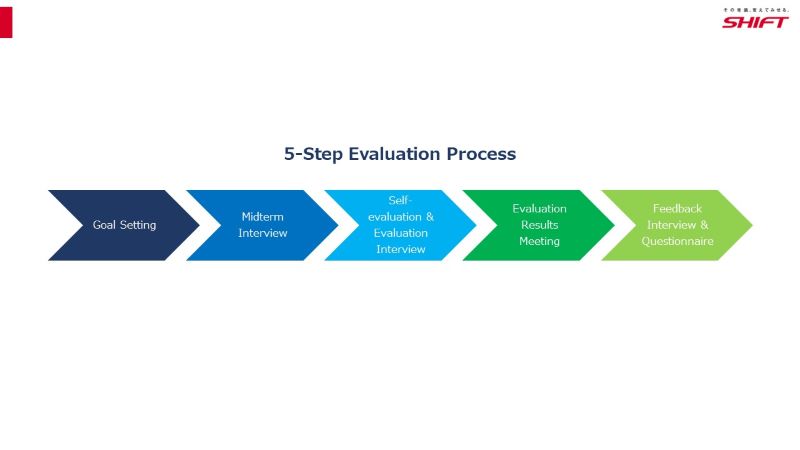
This is possible because SHIFT uses an absolute evaluation system, where performance is assessed based on objective criteria for each job.
Even at the cycle’s midpoint, managers can compare their team member’s performance against their goals and a transparent breakdown of the skills in their job classification.
Factors like age, tenure, comparison to other employees, or considerations such as “How many people can receive an A rating?” do not impact an absolute evaluation.
Instead, this system prioritizes what employees do (competence and results) and how they get it done (attitude and value alignment).
The emphasis on engaging employees in the process reflects SHIFT’s sincere commitment to personalized career development.
A highly detailed job classification and compensation system: rewarding those who achieve results
Lastly, for the individual goal-setting and absolute evaluation program to succeed, we must have a transparent job classification and compensation system.
Along with similar questions in the evaluation meetings, our goal sheets include sections for employees to clarify their desired positions and salaries.
Everyone sets a short-term goal for the next six months and a target for their five-year career plan.
These topics are linked because SHIFT evaluations drive promotions and the associated salary increases. Job classification tables, including salary, are publicly available within the company.
It is also worth noting that SHIFT has 20 job classifications, each subdivided into 10 levels.
These include quantifiable standards that outline the responsibilities and performance indicators that managers and employees can use to assess performance.
The transparency of this system empowers everyone to track areas of growth and helps identify opportunities for new skill development.
A clear understanding of the requirements to be promoted and receive a salary increase creates a motivating work environment, and SHIFT wants to reward those self-motivated employees who produce results.
There are many examples of employees who made quick progress in their careers under this system, but here are two.
The first is a manager who achieved more than planned and increased their annual salary by 3.4 million yen.
The second is someone with no prior experience who received a 1 million yen salary increase just four months after joining SHIFT by utilizing the Step Up Examination, which enables rapid advancement.
As a company, we will continue supporting our employees as they pursue their goals.
We also hope that SHIFT will become the first place people think of when they want to embrace new challenges in their next career move.
(Note: The contents of this article and the affiliations of the interviewees are as of the time of the interview.)








